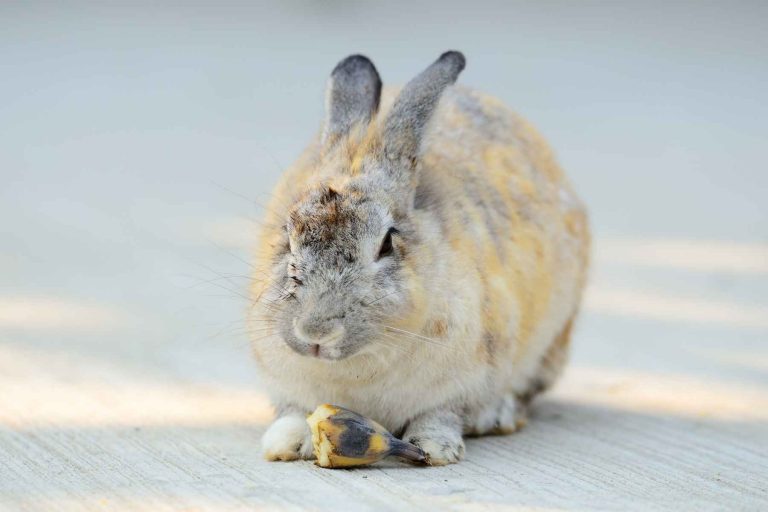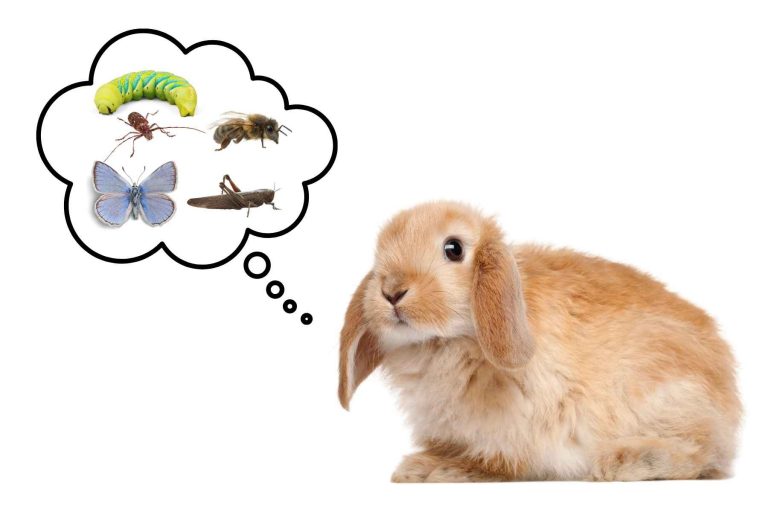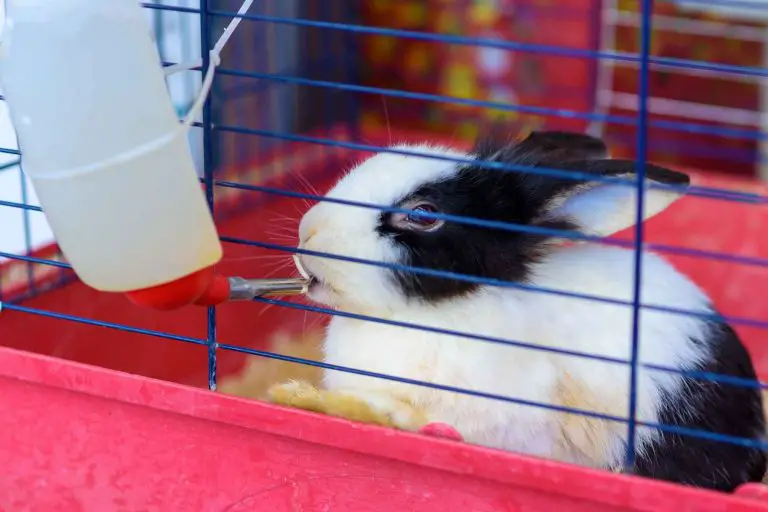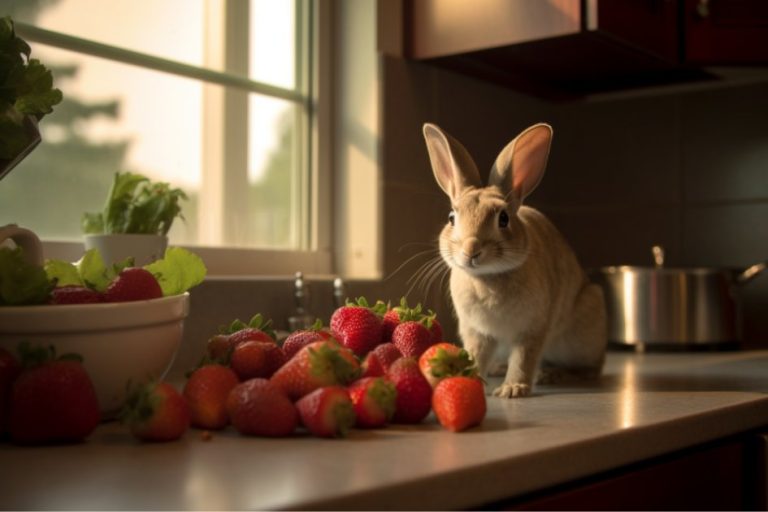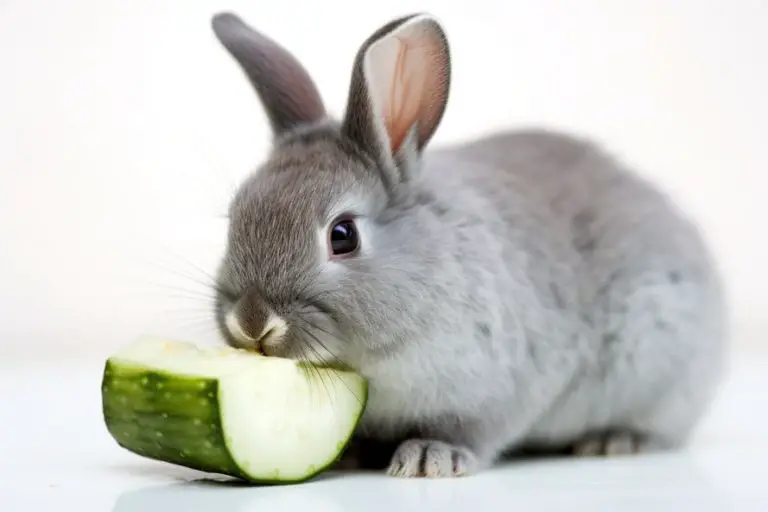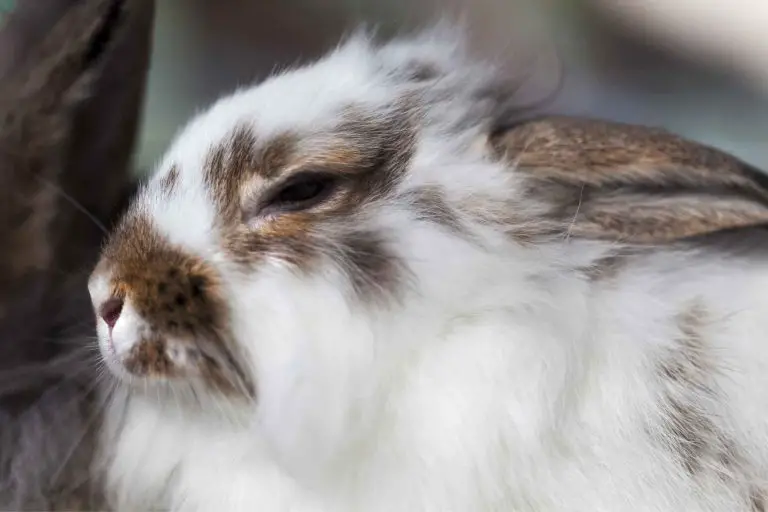What Do Rabbits Eat?
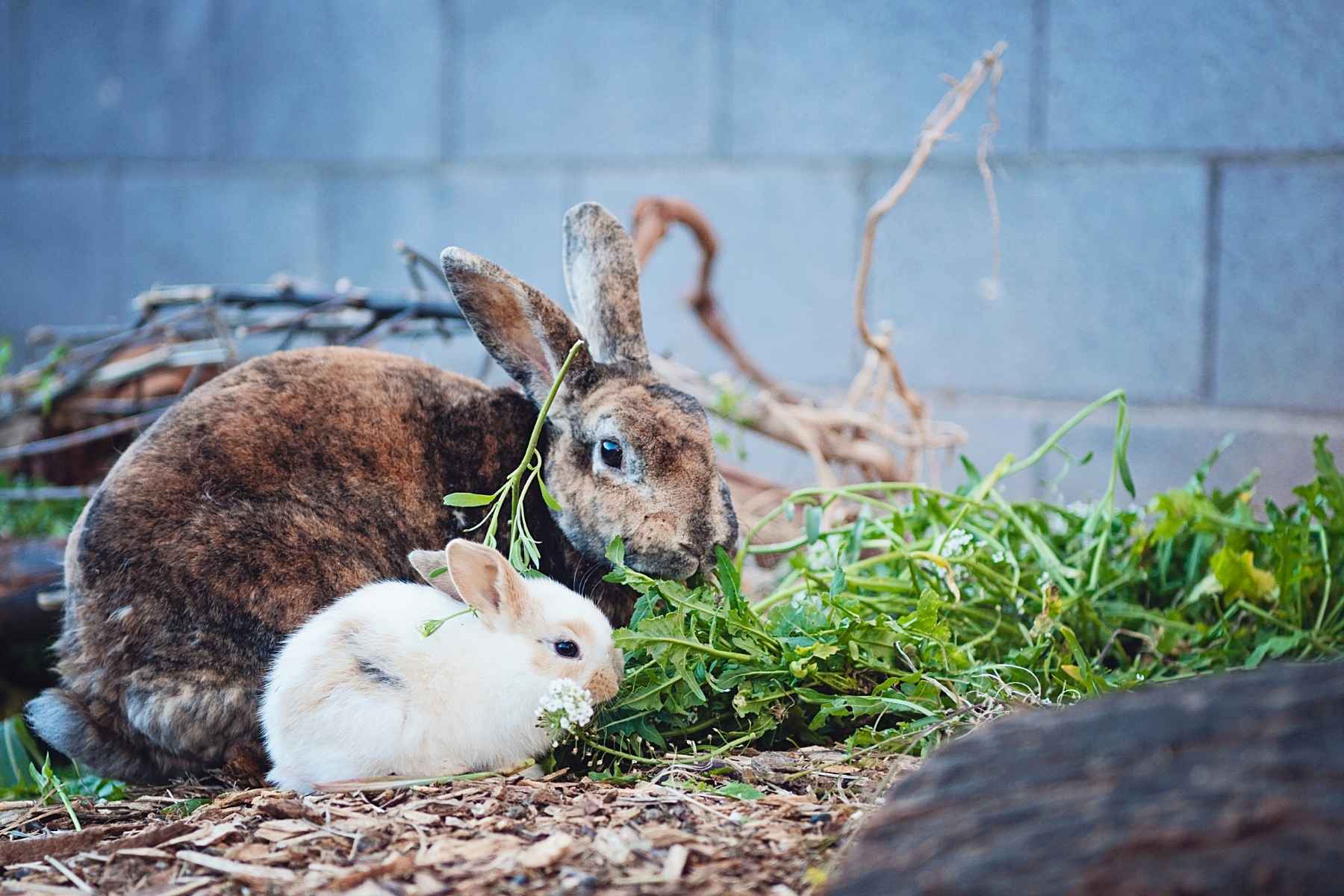
Most people are unsure what rabbits eat. If you were to ask your average individual, they would probably say something about carrots, thanks to a certain popular cartoon character. But what rabbits actually eat is much different: their diet is not at all like what most people imagine.
Like many animals, their diet is pretty varied but has a main component. Rabbits have a very diverse diet, and it does include some small amounts of fruit and vegetables, but for the most part, their diet consists of grass, hay, weeds, and the like. As pets, pellets make up an essential part of their diet.
If you are simply curious about what rabbits eat in the wild, we’ll talk about that in this article. If you are interested in getting a pet rabbit and would like to know how you should feed them, we’ll discuss that in great detail as well! After all, rabbits have unique dietary needs, and any prospective owner should do their research.
Rabbits and Vegetables
As mentioned previously, many people believe that rabbits eat vegetables quite frequently, thanks to cartoons. Now, it is true that rabbits eat vegetables sometimes, but not nearly as much as many people think. First of all, some vegetables are not even safe for rabbits to consume. Secondly, they aren’t a crucial part of their diet.
The vegetables that people most associate with rabbits aren’t right at all. Carrots, for instance: rabbits do not eat root vegetables like carrots in the wild. Root vegetables would be a hassle for rabbits to dig up, but carrots, in particular, are relatively high in sugar, which is not very healthy for rabbits at all.
As for lettuce, another vegetable that many people think is important to rabbits, it varies. Rabbits occasionally eat it in the wild, but many types of lettuce are bad for them or, at best, not very helpful. Iceberg lettuce can be toxic to rabbits, while other light leaf variants don’t offer much nutrition.
Rabbits don’t primarily eat vegetables in the wild, and they shouldn’t do so as pets either. Vegetables are best used as treats for a pet rabbit, as they can and should get the majority of their nutrition from other sources.
A Wild Rabbit’s Diet
In the wild, a rabbit mostly eats grasses as similar plant matter, such as weeds and hay. This can include clover, wildflowers, and things like that. Wild rabbits may even eat bark, twigs, and pine needles in some cases. In some rare cases, a rabbit may even climb a suitable tree to eat the leaves from its branches.
Admittedly, most of that will not be widely available to a pet owner unless they are the type to go out and forage for fitting rabbit food. Even if you are such a type, we don’t recommend it because there are too many factors to consider, and running around, ripping up grass doesn’t sound very fun.
When it comes to pet rabbits, there are much easier ways to get them the nutrition they need. In the next section, we’ll discuss the best way for you as an owner to feed your pet rabbit and what a well-balanced diet looks like for these pets.
A Pet Rabbit’s Diet
Pet rabbits will not eat all the same stuff they would consume in the wild, primarily due to availability. But you can meet their dietary needs by focusing on some select food groups. The most important part of a pet rabbit’s diet is hay. In fact, the vast majority of your pet rabbit’s diet should be hay.
Expert assessments vary, but the estimated percentage of a rabbit’s diet that should be hay is 70% minimum and a whopping 90% in some cases. The rest of a pet rabbit’s diet should consist of commercial food pellets. The reason for the variance in hay portions has to do with a rabbit’s age.
Younger rabbits are still growing and thus need more protein, so they need a higher portion of pellets in their diet.
On the other hand, older rabbits tend to need more fiber, and thus should eat an even larger amount of hay. 90% hay may sound like a lot, but keep in mind that wild rabbits primarily eat grass as it is.
Of course, there are multiple types of hay, so what kind can your rabbit eat?
Types of Hay Preferred by Rabbits
There are several types of hay that rabbits prefer:
- Brome hay
- Oat hay
- Timothy hay
- Orchardgrass hay
- Alfalfa hay (baby rabbits only)
It is perfectly acceptable to feed your pet rabbit any or all of these hays, even if you mix them. You need to make sure that all of the hay is fresh, with no mold. That certainly wouldn’t be very good for your rabbit’s health. There’s also a reason why alfalfa hay should be reserved for baby rabbits.
Alfalfa hay is legume hay, not grass hay. Grass hay is preferred for older rabbits because it has more fiber, which they need more of at an older age. There’s more to a rabbit’s diet than hay: you need to consider pellets as well.
Rabbits and Pellets
While hay should make up most of a rabbit’s diet, the rest should be pellets, ideally. Some people balk at the idea of buying commercial food for pets, convinced that it can’t possibly be good for them, but one should remember that pellets are explicitly designed with the nutrition of rabbits in mind.
Of course, there are both quality pellets and cheap pellets. You want to invest in quality ones with ample amounts of protein and fiber. As with hay, alfalfa pellets are suitable for baby rabbits, while Timothy pellets are great for older rabbits. You should avoid any pellets that use dried corn, seeds, or nuts.
How many pellets you should give your rabbit daily is primarily dependent on their size. A dwarf adult rabbit only needs about 0.12 cups of pellets a day, whereas medium and large-sized rabbits need about 0.25 cups of pellets.
Where Do Fruits and Vegetables Come In?
As mentioned earlier, rabbits can eat vegetables, but it’s not a particularly crucial part of their diet.
If you want to add a vegetable or two to their diet every day, you can.
The following are the vegetables you can provide 1-2 cups of to a medium-sized rabbit daily:
- Basil
- Bell Peppers
- Arugula
- Alfalfa Sprouts
- Boston Bibb Lettuce
- Bok Choy
- Butter Lettuce
- Brussel Sprouts
- Cilantro
- Carrot Tops
- Clover Sprouts
- Dill
- Cucumber
- Escarole
- Endive
- Green Leaf Lettuce
- Fennel
- Mint
- Okra Leaves
- Parsley
- Oregano
- Radicchio
- Radish Tops
- Radish Sprouts
- Romaine Lettuce
- Red Leaf Lettuce
- Sage
- Rosemary
- Thyme
- Wheatgrass
- Watercress
- Zucchini
Vegetables You Can Feed Once or Twice a Week
Some vegetables, flowers, and greens are unsuitable for feeding a rabbit every day. Instead, they should be fed to a medium-sized rabbit twice a week at most. They are as follows:
- Broccoli
- Carrots
- Calendula
- Chard
- Chamomile
- Clover
- Dandelion Greens
- Collard Greens
- Daylily
- Dianthus
- English Daisy
- Honeysuckle
- Hibiscus
- Kale
- Marigold
- Pansy
- Rose
- Nasturtium
- Spinach
Fruits a Rabbit Can Eat 1-2 Times a Week
Once or twice a week, you can serve your rabbit a fruit serving of 1.5 tablespoons per five pounds of body weight. But you can only feed them certain fruits, which include the following:
- Banana
- Papaya
- Blueberries
- Blackberries
- Cranberries
- Melon
- Grapes
- Orange
- Nectarine
- Pear
- Peach
- Pineapple
- Plum
- Raspberries
- Seedless Cherries
- Seedless Apple
- Watermelon
- Strawberries
Particular Foods That Rabbits Can’t Eat
There are some foods that you cannot feed your rabbits because they are toxic or otherwise harmful to them. These foods are as follows:
- Beet
- Beans
- Cabbage
- Chocolate
- Cauliflower
- Cookies
- Corn or Corn-Based Food
- Crackers
- Legumes
- Iceberg Lettuce
- Nuts
- Mustard Greens
- Peas
- Pasta
- Potatoes
- Rhubarb
- Sugar
- Seeds
- Sugary Cereal
- Turnip Greens
- Yogurt
Summary
Well, there you have it: all the things rabbits can and can’t eat and how much you should feed them of all of these things.
Remember that rabbits are supposed to eat primarily hay and pellets, with occasionally fruits and veggies if you care to provide them. However, it’s worth noting that you could skip those entirely without ill effect.
On a final note, you may notice your rabbit eating its own poop: this is an entirely normal thing for them to do, and they do it to ensure they get all possible nutrients from things they have eaten. If you see this, don’t be alarmed, and don’t stop it from happening. It’s normal.

